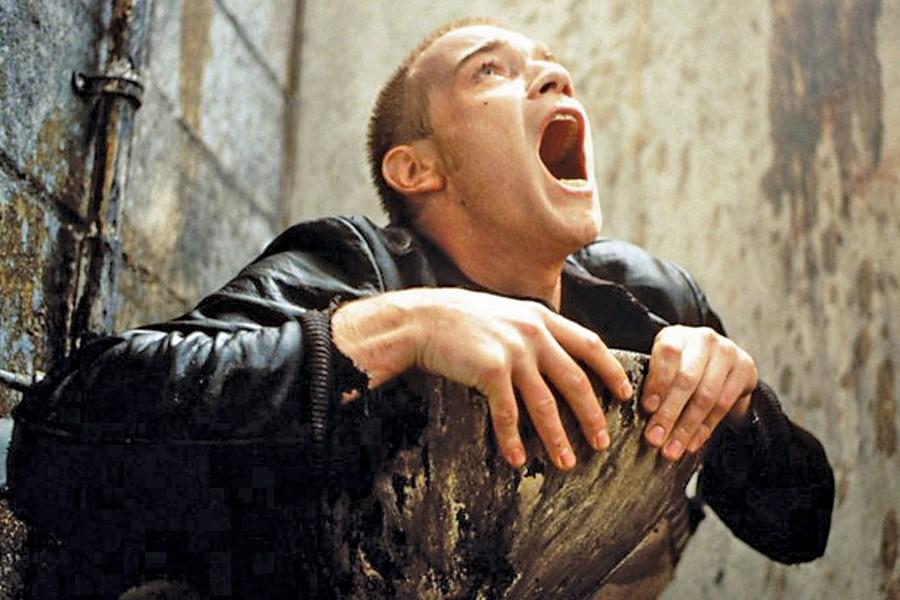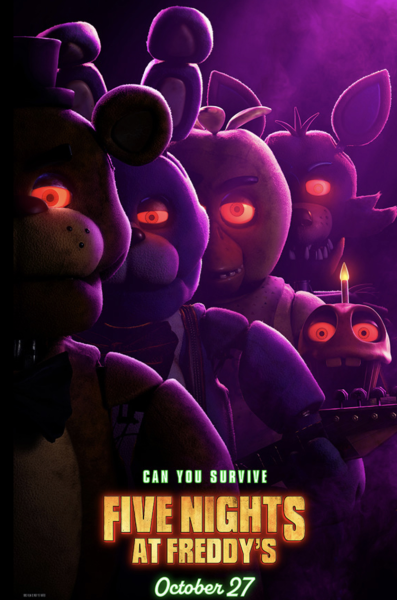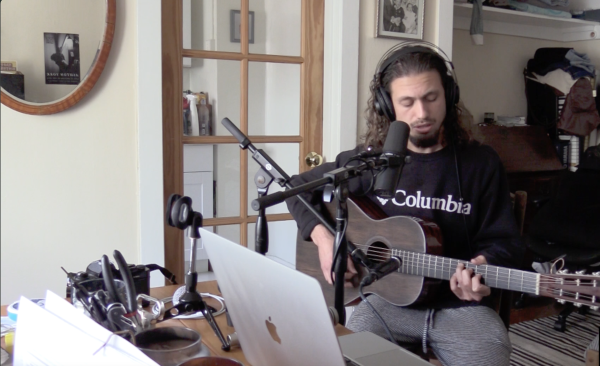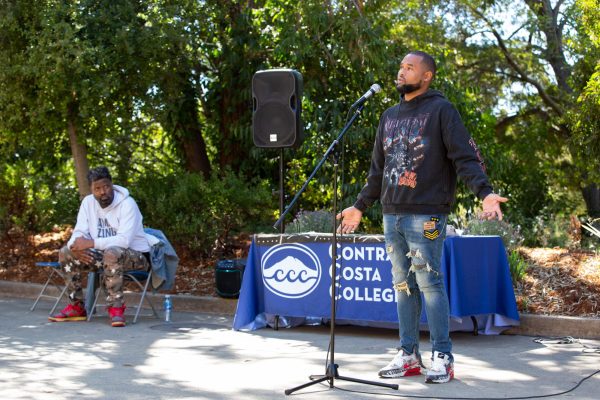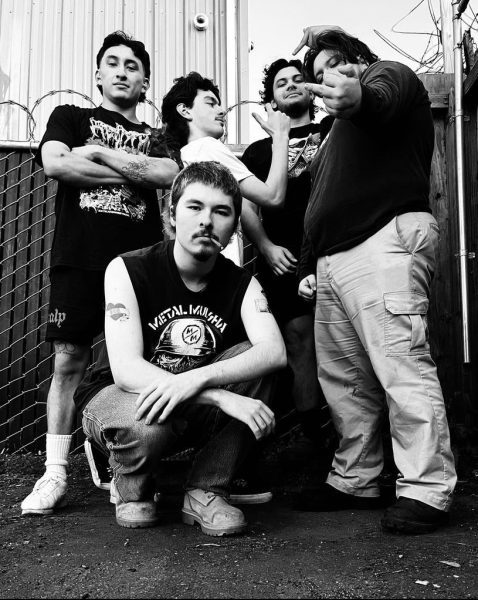‘Trainspotting’
Silver screen drug romp entertains, encourages self-actualization nearly 20 years after its debut
May 17, 2015
Subtext:
Choosing life is the biggest decision anybody could make.
In the sea of opportunity that is the first world, it is all too easy getting swept away by indecision and pulled down by an undertow of goalless inactivity, to breath salt and sink into the jade as the successful swim stoically around you — fine and without you.
Scottish author Irvine Welsh’s novel and the proceeding silver screen masterpiece of the same name directed by Danny Boyle (“127 Hours,” “Slumdog Millionaire”), “Trainspotting” is all about choosing life. That is, choosing a life fit for you, by you, regardless of outside influences and poor decisions of the past.
The raunchy, darkly comedic film drama, released in 1996, takes viewers on a journey that magnifies the gritty, often romanticized drug counterculture, with particular emphasis on one young man’s quest to overcome heroin addiction. Of course audiences do not make it to the happy ending without having their best sensibilities offended along the way.
As Mark Renton (Ewan McGregor), our humble, 20-something, addicted narrator coolly puts it, “…Choose your future. Choose life. But why would I want to do a thing like that? I chose not to choose life. I chose something else. And the reasons? There are no reasons.
“Who needs reasons when you’ve got heroin?”
“Trainspotting” beams in the face of civilized society, underscoring the fringe elements we are all accustomed to turning away from, despite knowing that even without our attention such subcultures are still there, toxic and waiting to tempt our young, ill and insecure. This film is not for the faint of heart or the easily nauseated.
It does, however, use John Hodge’s Academy Award-nominated screenplay to great effect, displaying superb story telling and cinematography, accompanied and often juxtaposed by a dreary yet danceable soundtrack.
Popularly referred to as punk grown up, “Trainspotting” has created a narrative commentary on those growing up entrenched in the civic angst and active rebellion of punk rock culture, which emphasizes radical, irresponsible independence: sex, drugs, living fast, dying young and having no regrets.
Punk rock appeals largely to teenagers, as being a teen is a time in life when we tend to not register our mortality and actively seek autonomy from our parents by any means necessary. Some of these adolescents grow into perfectly capable, mostly sober adults with a taste for punk music. Others get so wrapped up in the unabashedly self-centered, anti-establishment lifestyle that, when it comes time to find where they fit into established society, their big picture is obscured.
“Trainspotting” touches on this theme, on being at war with opportunity. It examines whittling down all opportunity, becoming so self-victimized, that no one, not even yourself, could reasonably have expectations of you.
The late Lou Reed, in “Heroin” by The Velvet Underground, wrote, “I have made the big decision/ I’m gonna try to nullify my life.”
Such individuals might be swamped in self-doubt, anxiety and depression; cosseted by the fleeting promise of the next high; perpetuating a false dichotomy of misery and numbness, sobriety and intoxication; embracing misology, the hatred of reason, because they have potential and wish they did not; wishing they could switch places with someone in a developing country, forfeit their abundance of opportunity to someone who wants it more and only worry about surviving to the next day; tuning out the art, influence and depth of humanity in favor of animal instinct — in favor of nothing more than the pursuit of the next hit.
The reasons, whether starkly realistic or cryptic and romantic, are as numerous as the individuals who choose, or get chosen through circumstance, to abuse drugs. Despite infinite subtext, the text is sole and glaring: It feels good.
As historic British author and linguist Dr. Samuel Johnson put it, “He who makes a beast of himself gets rid of the pain of being a man.”
When your thoughts get this loud, it’s the easy way to drown them out with drugs. The key is in confronting the ugly, disfigured parts of yourself and of society with a clear head, registering and accepting them, and proactively working to better the circumstances for yourself and others. Ignoring or looking down on it all will not suffice.
“Trainspotting” provides compelling context for anyone amid identity crisis or addiction, especially young adults, to turn visions of jade into emeralds.
Text:
“Trainspotting” is set in mid-1980s Scotland, in the Leith district north of Edinburgh. At the time, heroin use is escalating rapidly, as is pop culture’s fascination with electronica, house music and dance clubs.
Renton, an otherwise capable, sensitive and intelligent young man, has chosen to nullify his life. He has, for reasons one can only speculate, chosen not life.
His dialogue and attitude show the audience he is smart, charming and of good humor, just misguided and too accustomed to finding joy in life from the intravenous injection of hard drugs.
He and his hapless group of mates occupy the off time from heroin committing small scale heists and petty theft, drinking, playing soccer and anticipating the next cook-up.
When Renton decides early in the film that enough is enough, he quits after taking one last hit.
“This was to be my final hit, but let’s be clear about this. There’s final hits and final hits. What kind was this to be?” It certainly was not a final hit.
Suddenly braced with the consciousness of sobriety, Renton seeks a sense of belonging and companionship, and wishes to indulge his resurfacing libido. Enter the dance club scene and enter Diane (Kelly Macdonald).
Striking out in an awkward scene of rejections, Renton watches as a wallflower while his friends’ nights of sexual conquest unfurl with success. He makes his last stand attempting to woo Diane, a clever, feisty girl who surprisingly gives him the time of day.
Come morning, Renton is shocked to find Diane’s flatmates are actually her parents and that the object of last night’s liquored-up lust is, in fact, a 15-year-old schoolgirl.
As he walks her to high school, horrified, he pleads for her silence, which is met with blackmail.
Shortly thereafter, the group makes the “healthy, informed, democratic decision to get back on heroin as soon as possible.”
The fiending, the stealing, the drug-induced apathy — all aspects of the lifestyle — return. As the story arch nears its peak, the group members find themselves in a downward spiral, and their high times punctuated by misery, death, disease and legal ramifications.
The tragedies of innocent lives lost from the margins of his and his friends’ habit prompt Renton to finally come clean, but not before his near death due to overdose.
Reed’s “Perfect Day” playing in the background as Renton’s body sinks into the carpet, his breathing shallows and eyes roll back, is on the nose.
Renton finds independence and success in London as a property letting agent, but the shady figures from his past arrive on his heels. After his uncouth comrades wear out his patience and lose him his job, Renton and his old gang decide to take advantage of a sizeable heroin deal that happens its way into their hands.
Making out with 16,000 euro, the foursome celebrate at a pub, where spilt beer and a pint glass to an innocent man’s face remind Renton of the monsters beneath the skins of his old friends — save for Spud (Ewen Bremner), who is just so dim and light-hearted that he is easy to influence.
Renton burns the bridge once and for all, sneaking off with all of the money in the middle of the night. To be fair to his old friend, Renton leaves Spud a cut of the money in a locker, which a scene in the credits shows he is astonished and elated to receive.
“… I’m going to change. This is the last of this sort of thing,” Renton narrates. “Now I’m cleaning up and I’m moving on, going straight and choosing life. I’m looking forward to it already.”
Apart from the club scenes, the use of upbeat pop and dance music backing scenes of loneliness, low points and despair, specifically in the barrage of nightmares Renton experiences in the detox and withdrawal scene, capture anxiety perfectly through juxtaposition.
In some scenes, viewers will feel uneasy and want to turn away. You will find yourself saying, “That did not just happen,” and beg the film to lie to you.
If you accept that this is, in fact, a tragic reality for some and listen carefully to the narrator, you might make it through this 93-minute drug romp with minimal cringing and a new understanding of heroin addiction.
Everyone has talent — at least one talent — and every life has potential to do great things, horrendous things, normal things or nothing at all.
Sometimes a fear of failure is what holds us back; other times it is the fear of success.
The more you make decisions the more comfortable you become making decisions, thus becoming more decisive. Better yet, it teaches you that making the wrong decision once is not the end of the world, and that in life our decisions will be so numerous there is ample room for failure.
Some of life’s best lessons are taught through failure, and learned by how we react to such shortcomings and move forward.
Choose life.
In the end, that’s what Renton does. It was the best decision he ever made.
Now he looks forward to opportunity, instead of beating it back with a torch and spoon.


